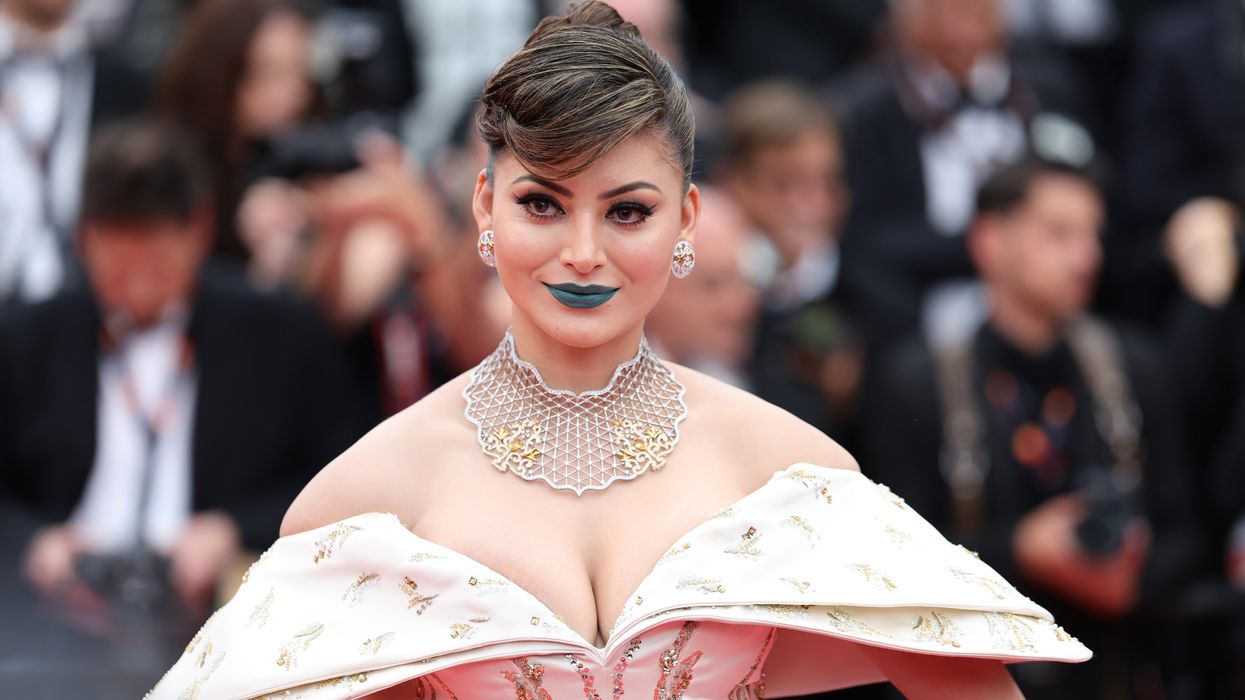Let’s talk about Urvashi Rautela. Not the memes or the mockery but the walking paradox that keeps showing up on red carpets, in headlines, and sometimes, accidentally, in temples.
You might roll your eyes when her name pops up, but you don’t scroll past. Whether she’s blocking a hotel staircase at Cannes for a photo op or casually suggesting a temple near Badrinath is dedicated to her, Urvashi is a recurring character in India’s cultural circus, equal parts spectacle, sincerity, and self-promotion.
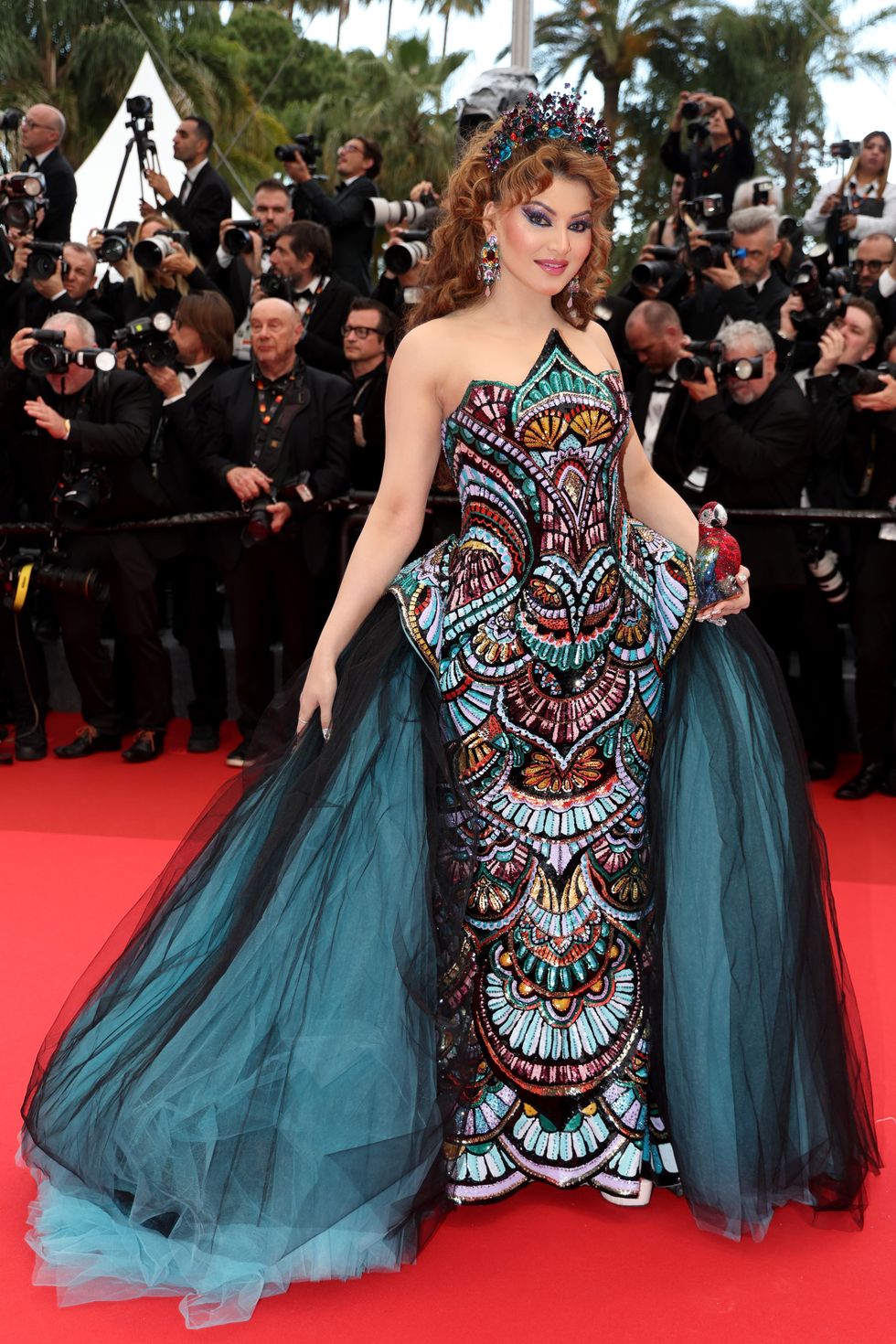
From crowns to Cannes: the evolution of Urvashi
Once a beauty queen, now a full-time internet obsession, Urvashi Rautela has been chasing stardom across languages, genres, and continents. She’s done Bollywood, dipped into regional cinema, walked international carpets, and, most importantly, refused to be invisible.
At Cannes 2025, she delivered one viral moment after another. A video of her blocking a hotel staircase for a photoshoot, with guests trapped and eyes rolling, went viral. Netizens called it “peak cringe.” Her response? Silence. Because why apologise when you’re trending?
A black gown with a torn armpit? Fans debated: PR stunt or legit disaster? Urvashi spun it into a hero moment, claiming she ripped it while helping a 70-year-old woman. Cue awws and eye-rolls!
A gold “bra-necklace” clutch dubbed “Barbie’s midlife crisis” and a crocodile necklace. Cartier or copycat? The internet still isn’t sure!
But what others call faux pas, Urvashi spins into flair. Even when critics compared her golden look to “Barbie’s midlife crisis,” she didn’t flinch. She wore it like armour and perhaps that’s the point.
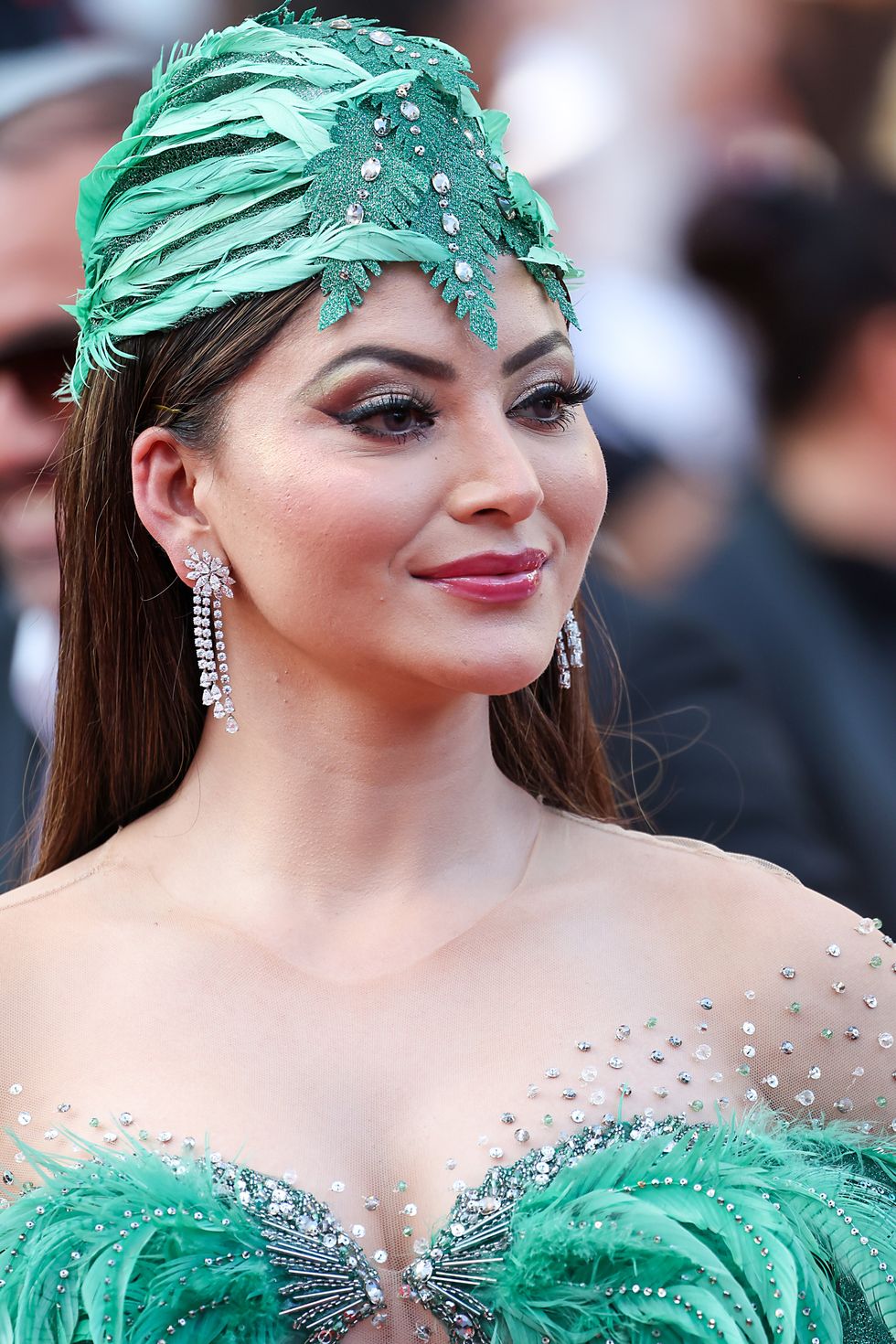
Temples, tales, and a touch of delusion?
Then there was that temple claim. In a now-notorious interview, she said a shrine near Badrinath was built in her name, where devotees garlanded her photo. The internet exploded. Locals fumed. Eventually, she clarified: “It’s named after the apsara Urvashi!”
This wasn’t her first godly flex. In 2022, she reposted a fan’s “puja” to her, cheekily dubbing it Urvashism. She even expressed a desire for a real temple in South India, citing her growing fandom there.
So the question is, is it self-worship or self-marketing? Depends who you ask. But in a media world where buzz matters more than background checks, her temple talk, however misfired, worked.
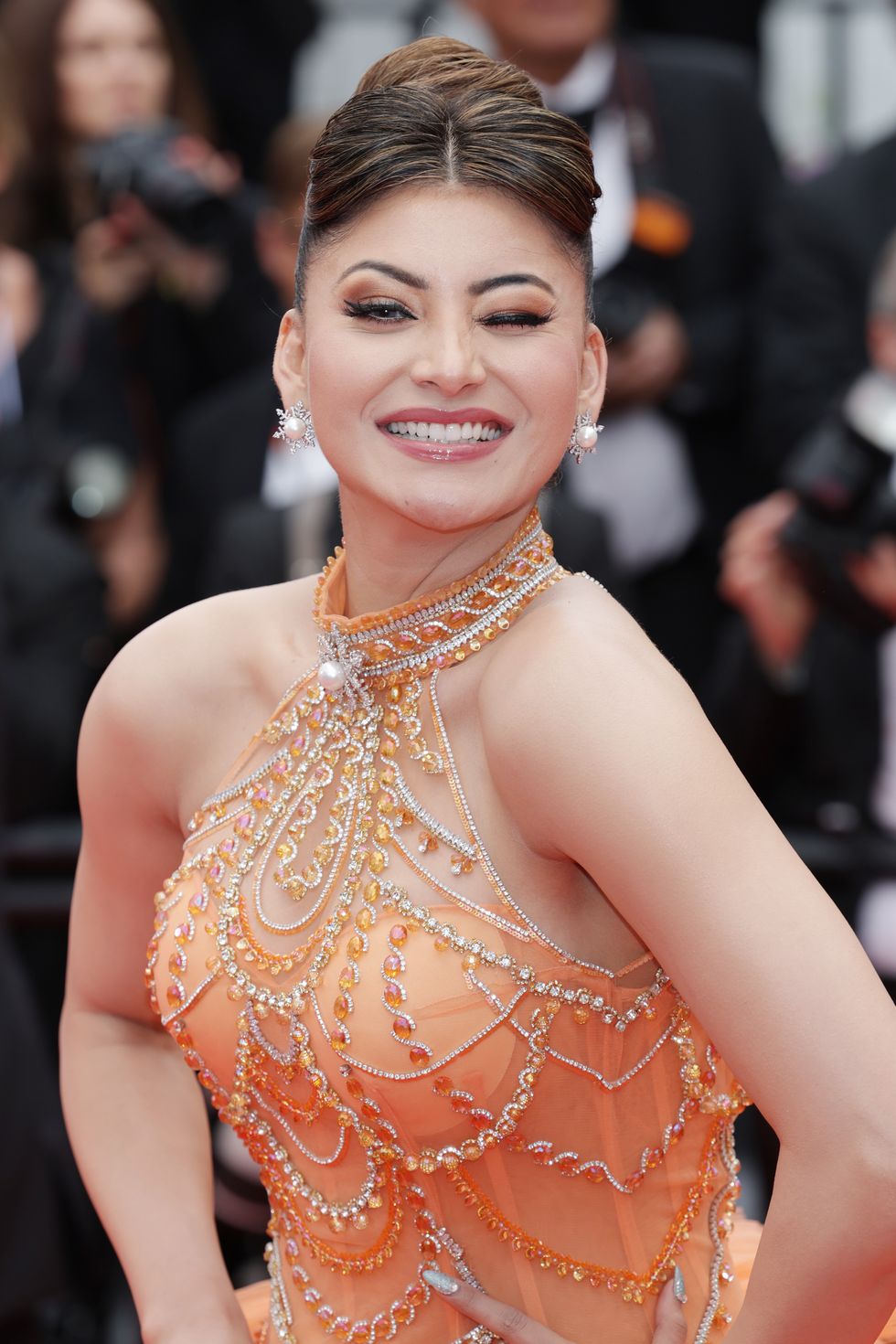
Fact-checking Urvashi: a full-time job
What’s tricky with Urvashi is that you never know where confidence ends and creative fiction begins. She’s claimed to be the first Bollywood actress to walk in Manipuri attire. Said she’s fluent in French. Hinted at roles in Kantara 2 and a Parveen Babi biopic, both quickly denied by the respective creators.
Add to that her tone-deaf moment after the Saif Ali Khan incident, where she accidentally pivoted from a stabbing incident to discussing her diamond Rolex. The internet says even her apologies sometimes feel like PR rehearsals rather than genuine remorse.
Still, she keeps pushing. And pushing. And pushing.

The meme economy loves her
No Indian celebrity gets memed quite like Urvashi Rautela. Twitter and Reddit dissect her every move. There’s a whole corner of the internet that treats her as performance art, like a case study in what happens when hustle overtakes humility.
Nicknames like “Mata Urvashi” and “Damdami Mai” trend ironically. Hashtags like #Urvashism live on. Even the phrase “delulu is the solulu” fits her internet brand like a glove. The point is, she’s not just mocked, she’s watched.
And that’s the trick. In today’s fame economy, it’s not about being respected. It’s about being remembered. And on that front, Urvashi delivers.
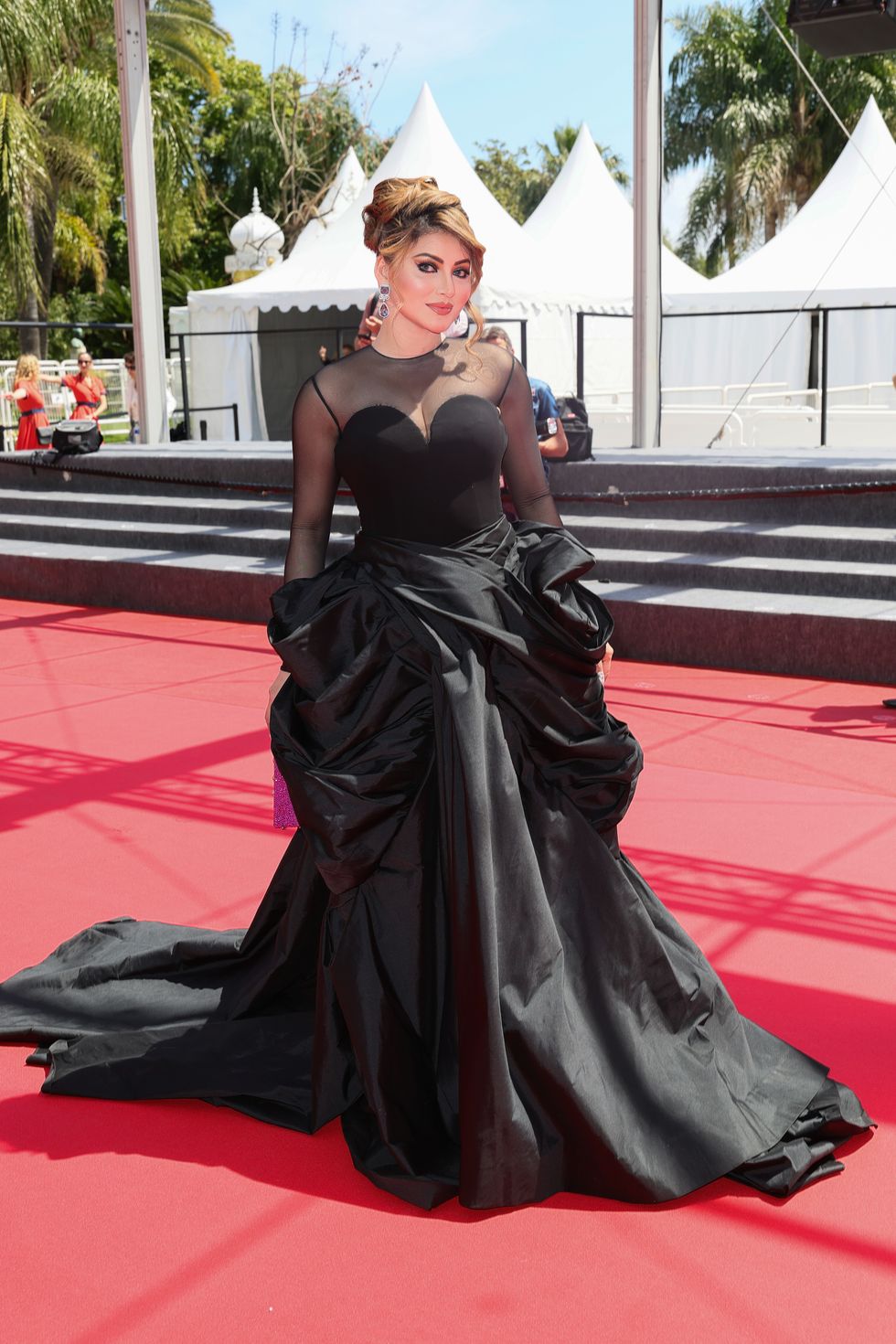
Hustle or hoax? You decide
Behind the glitter and gaffes is someone who clearly wants it. The fame. The acceptance. The top seat at every table. Urvashi Rautela might not always have the right words or the right necklace, but what she does have is relentless drive.
Her story isn’t polished, but it’s persistent. She’s a walking headline generator, never playing it safe, never fading quietly. Whether you laugh with her or at her, she’s part of the cultural conversation. And let’s be honest, we need a few characters like that to keep the circus interesting.
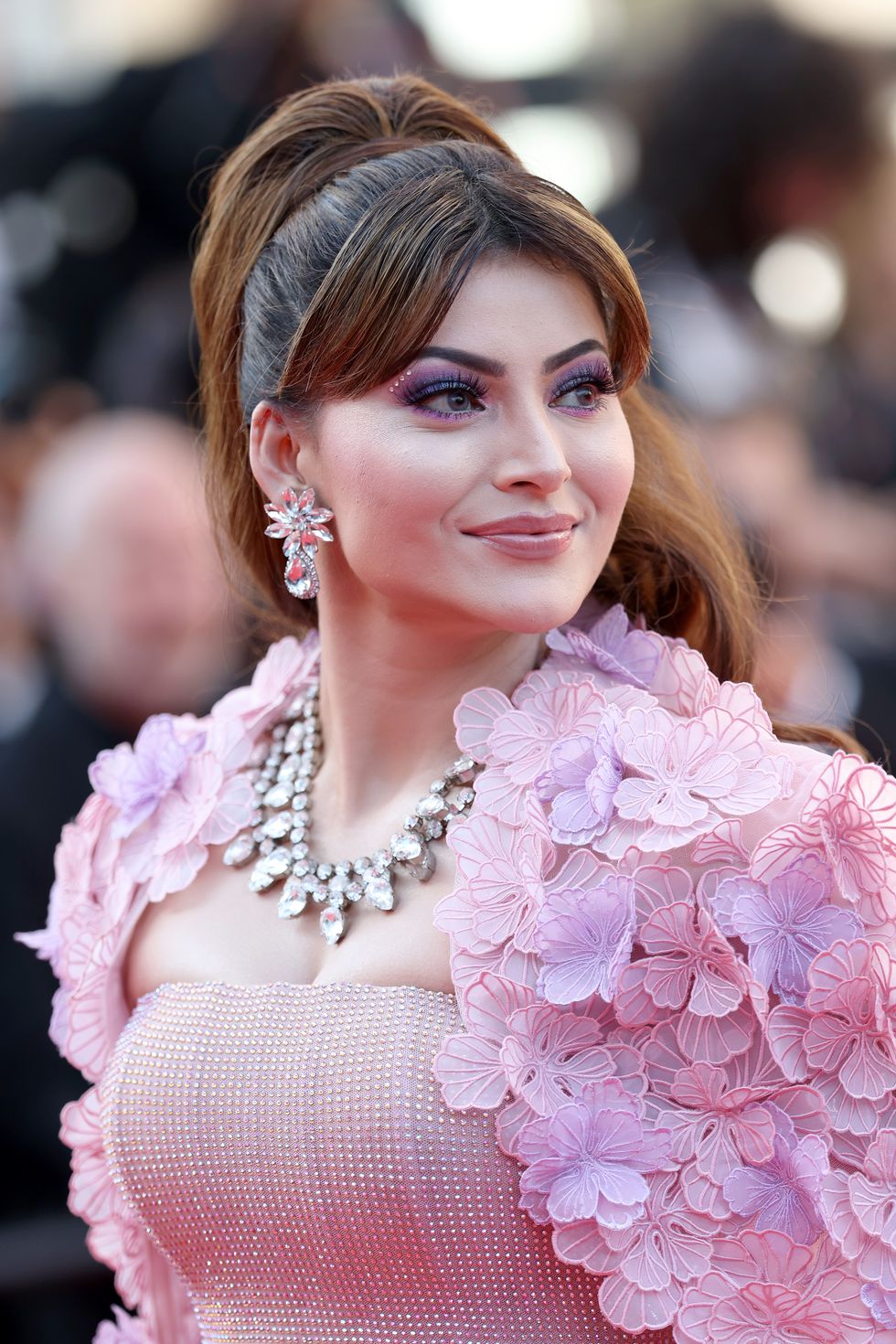
Final thoughts? Don’t underestimate the unbothered
Urvashi Rautela is not trying to be perfect. She’s trying to be unforgettable. And in an era of blink-and-you’ll-miss-it fame, she’s cracked the code. Loud outfits, louder claims, and the loudest kind of self-belief.
So next time you see her trending, ask yourself: Is she clueless… or playing 4D chess while we’re stuck on checkers? Either way, you’ll keep watching. And that’s exactly the point.
